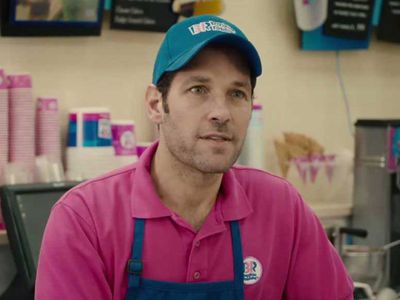Scott gets released from jail in the first ten minutes of the movie, and his trouble finding a job is the reason that he ends up getting super powers at all. The only work he can get is at Baskin-Robbins, and even there Scott is quickly fired when his manager finds out that he spent time in jail. Scott is unable to get a real, well-paying job, even though he clearly has some amount of useful skills based off events prior to the beginning of the movie. The American prison system doesn’t serve to prepare its constituents for success outside of jail, and Scott’s plight is a prime example of this. Originally, Scott is completely averse to returning to crime. He rebuffs his criminal friend’s efforts at recruiting him for a heist twice, only giving in once he loses his job at Baskin-Robbins. He only accepts the offer to break into Dr. Hank Pym’s house after he is unable to make honest money due to his prior offenses.

America is seen around the world as “the land of opportunity”. However, for the significant portion of it that has spent time in jail, this is simply not true. A study conducted in 2010 by Kris Warner and John Schmitt states that “ex-offenders lower employment rates for men [in the United States] by 1.5 to 1.7 percentage points”.
Ant-Man also fits very well into our criteria of what makes a “true” American story. Scott’s trouble finding work, while made mildly comedic, is not necessarily exaggerated. It also connects with the current social context of our troubled prison system. Signs offering to find jobs for felons, and even shops like Felony Frank’s catering to those unable to find jobs otherwise point to a situation more serious than one just confined to a superhero movie. With little opportunity to find jobs, many felons are forced to return to crime. While clearly a superhero movie, Ant-Man dives deep into a very pressing problem to America today.
You can find the study I sourced at http://www.cepr.net/documents/publications/ex-offenders-2010-11.pdf

This is a good take onto how Ant-Man connects and touches on the real world outside of superheroes. One thing that I liked about your analysis, Simon, was that you not only touched on the formal part, but the comedic part as well!
ReplyDeleteThis is a good take onto how Ant-Man connects and touches on the real world outside of superheroes. One thing that I liked about your analysis, Simon, was that you not only touched on the formal part, but the comedic part as well!
ReplyDeleteEven though this was only a brief part of the overall story, I liked how you paid attention to the cultural significance of this struggle for Scott. Considering the United States has the largest population of incarcerated citizens, this cultural analysis is very relevant.
ReplyDeleteI really liked how you drew a lot of cultural and social relevance out of the movie. I really agree with your analysis.
ReplyDelete